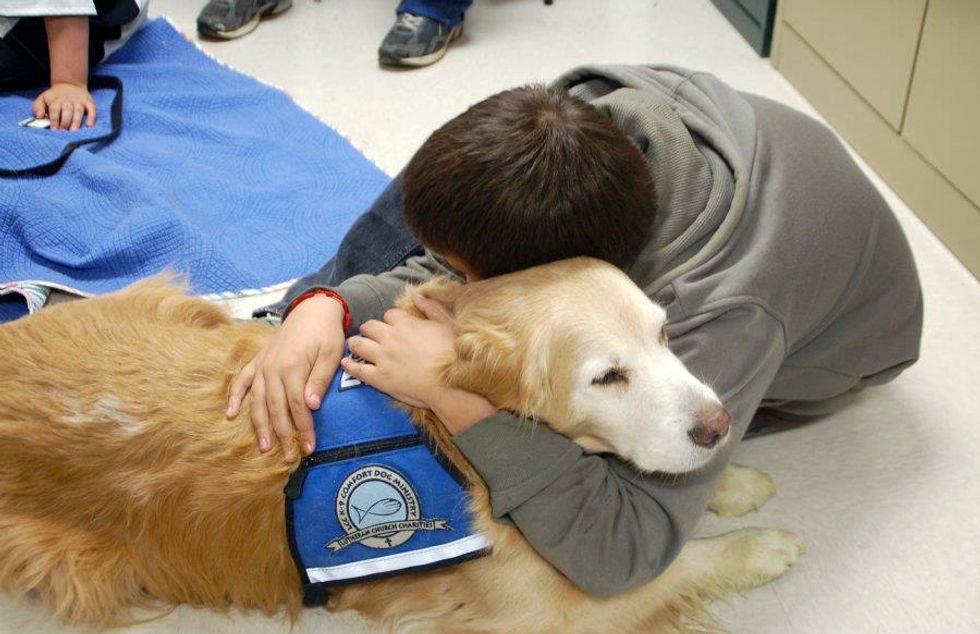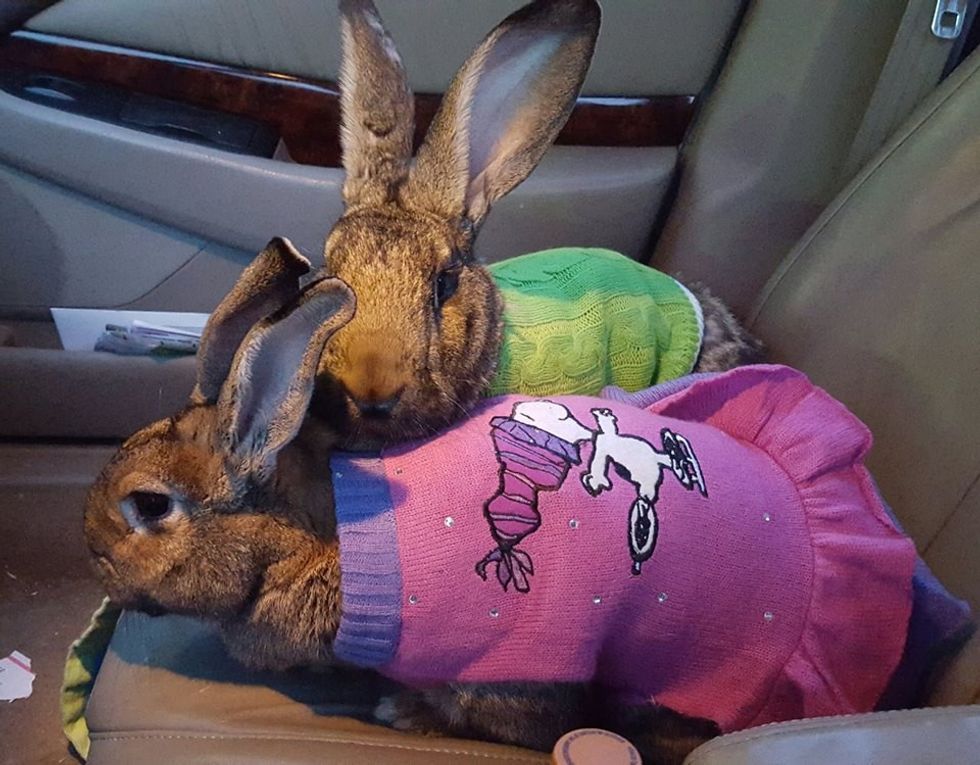Many people have therapy animals and for good reason, these cute sidekicks will have your back no matter what! Having a companion animal has been shown to reduce blood pressure, lower stress levels, and lower anxiety levels. Anxiety can cause people to feel panicked with little reduction, and can often lead to panic attacks that are difficult to pull yourself out of. It is not just a simple feeling of shyness, but an actual mental illness, which continues to effect millions of people worldwide, sometimes alongside feelings of depression, which can be tough enough to handle on its own. Therapy animals can calm their humans down, and their interaction with people has been shown to release endorphins in humans, which trigger positive feelings.
Pet Partners is a specific organization that trains volunteers and pets to provide animal-assisted therapy. Typically, dogs are used as therapy animals, but that doesn't mean only dogs can be therapy animals; even rabbits can be thanks to Pet Partners!
Betsy and Walter, pictured below wearing matching sweaters, are two Flemish giants that belong to Jenn Eckert. They were rescued and now spend much of their time with people in need of emotional support at places like nursing homes or universities. They are some of the many animals that Pet Partners has helped become certified therapy animals.
Having an animal companion by your side is an incredible feeling. An emotional support animal is a pet that helps alleviate symptoms of a mental or emotional disability through companionship and affection, which you can register your pet as if you feel as if you want to bring your companion with you everywhere for support. The Pet Partners Therapy Animal Program is the only nationwide program to register any species other than dogs. The nine species they register are dogs, cats, llamas/alpacas, equines, rabbits, rats, guinea pigs, miniature pigs, and birds. Different animals bring their unique traits and personalities to engage each client differently.
To learn more about Pet Partners, donate, volunteer, or register your own pet, visit their website: https://petpartners.org/










 The minimum wage is not a living wage.
StableDiffusion
The minimum wage is not a living wage.
StableDiffusion
 influential nations
StableDiffusion
influential nations
StableDiffusion












